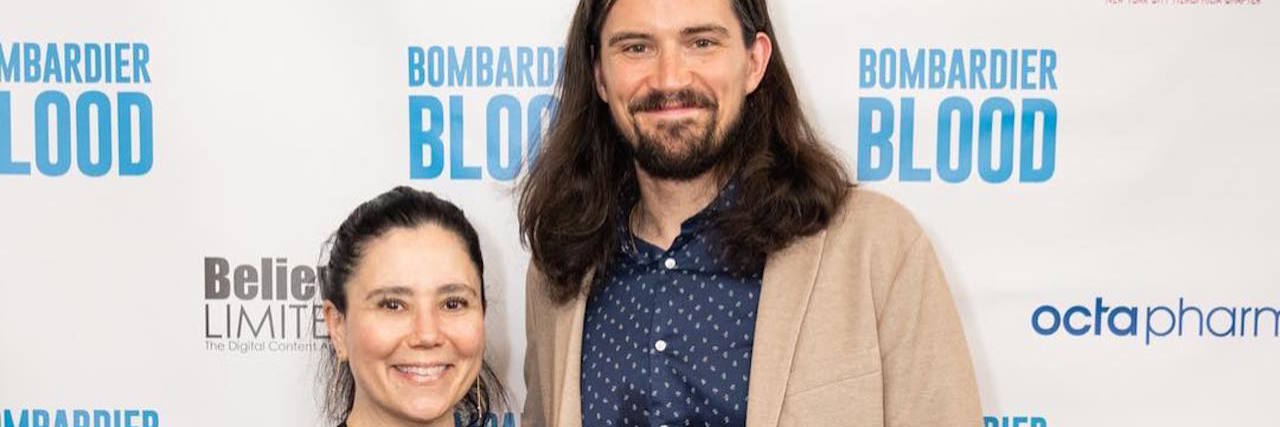How Meeting Paul Newman at His Camp for Sick Kids Inspired Me to Create a Film About Mental Health
Editor's Note
If you’re looking for creative inspiration, check out the Daily Inspirations group on The Mighty.
Paul Newman was my idol as a kid, and not because I could quote Cool Hand Luke or cared about his fabled blue eyes, but rather because he was the guy on the pasta sauce and popcorn bag who made my summer camp possible. Then, when I went to acting school and discovered his work in film, I fell in love with him all over again. Wow, how could this guy be this talented and this good, I thought. Who is this guy?
I was fortunate to meet that guy on three separate occasions towards the end of his life. Each time, we spoke about the importance of a summer camp experience for children with serious illness. One time, he referred to his rapidly-growing network of camps as “mushrooms sprouting in an open field.” He also exclaimed that I and other campers-turned-counselors were a real “kick in the pants!” 20-year-old me did my best to stay composed as this cultural icon was excitedly dropping Midwestern colloquialisms on me. The “kick in the pants” time really stands out in my memory too, as it was the same occasion where I met his wife, Joanne Woodward.
Paul met Joanne, his wife for what would be 50 years, at the Music Box Theatre in Manhattan, the same one I was working in on the day Paul passed away in 2008. Following the curtain call, one of the cast members stepped forward, announced his death, and shared with the audience what special history the Music Box Theatre had in Paul and Joanne’s story. I left work that day in a daze. I was so sad to know Paul was gone. I was also so grateful for our multiple meaningful encounters, but there was also a distinct sense in me that there was something more important taking place than simply my emotional processing. There was a sense that a torch had fallen, without anyone in particular in charge of picking it back up.
As I walked home through what felt like an even extra hellhole-ish Times Square that night, I wondered about who would follow in Paul’s footsteps. Which actors and artists would step up to fill the tremendous philanthropic and humanitarian void left behind by this entertainment titan with a heart of gold? I thought about camp and about how many of the most important experiences of my life were made possible by him. I thought about the counselors who, with only five days each year, did so much to make me feel loved, accepted, and “normal” in spite of having hemophilia, a life-threatening bleeding disorder. I wasn’t going to be able to pick up Paul’s torch, but maybe I could use my storytelling and professional talents to help de-stigmatize and normalize chronic illness for children in my own way, just like Paul did for me.
My sense of responsibility changed the day Paul Newman died — responsibility as an artist, as an adult, and as a beneficiary of tremendous vision and commitment. While I couldn’t have possibly predicted that it would someday lead to producing a film about mental illness and chronic blood disorders, there’s no denying that Let’s Talk is a direct descendant of my relationship to Paul Newman and the impact his humanitarianism had on my life as a kid with severe hemophilia. He taught me the importance of normalizing the lived experiences of people with serious illnesses, especially children, and of using one’s platform and opportunities to do good for others.
Watching a film and attending one talkback is not the be-all-end of addressing mental health challenges, but it is a door-opener into many different, difficult conversations, which is exactly what Let’s Talk is intended to be a door-opener and conversation-starter. The 40-minute film features stories and struggles from five people affected by chronic blood disorders, and covers a wide range of challenges and experiences. I believe in the power of storytelling and the need to amplify the stories most relevant for our times. It’s my hope that anyone who watches Let’s Talk will resonate with at least one of the characters and storylines shared. I believe attendees will leave the film and talkback having gained just a little more insight into their own mental health and with just a bit more confidence to take whatever their next steps may be. I like to think Paul would be proud.

